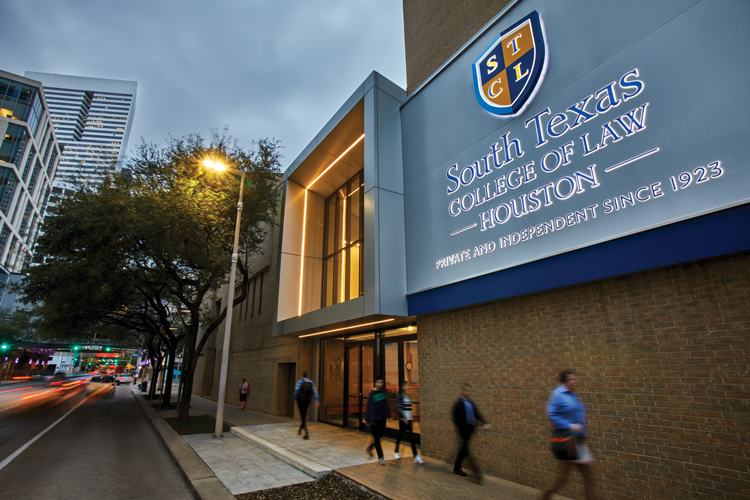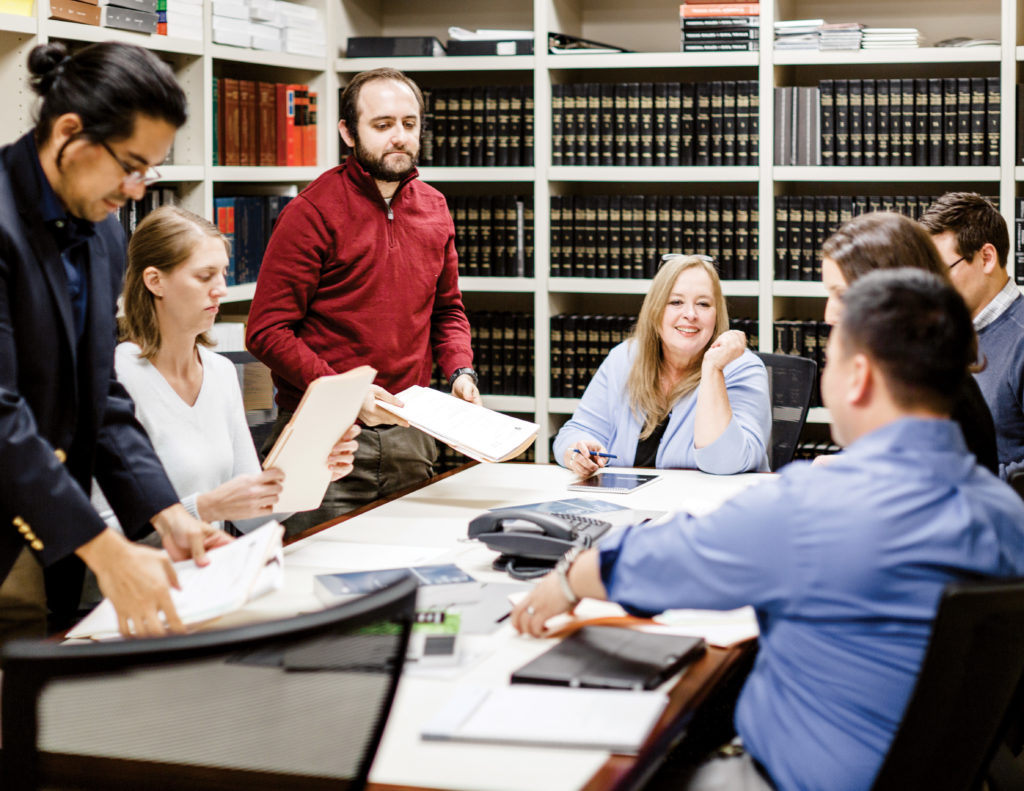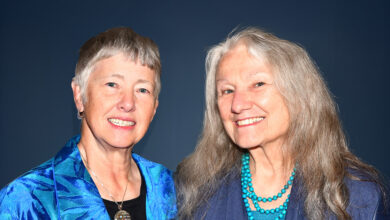Legal Aid Within Reach
South Texas College of Law offers pro bono help to under-represented groups.

You might not think you’ll ever need a lawyer, but you probably will at some point. And it’s best to be prepared.
“Estate planning is huge,” says Catherine Burnett, Associate Dean for Experiential Education and Professor of Law at South Texas College of Law Houston. In fact, the school’s estate-planning clinic is one of the busiest clinics at the school’s Randall O. Sorrels Legal Clinics.“ Estate planning isn’t as crucial [for married LGBTQ couples] as it was before Obergefell,” says Burnett, referring to the landmark 2015 Supreme Court decision legalizing same-sex marriage, “but it is still very critical. And if you’re not married, who do you want making medical decisions for you? Your estranged aunt? Who do you want to handle your affairs? It’s often overlooked, but it’s very important for the LGBTQ community.”
Estate planning is just one of the 21 civil-law clinics at the school. Clients can also take advantage of the family law, guardianship, probate, patent, trademark, tax, and veterans’ clinics.

The program pairs law students with clients who could not otherwise afford legal help, while giving those students a real-life client experience. “We wanted to borrow from the medical school model,” Burnett says. “Learning by doing. And it helps close the gap for those needing legal aid.”
“We don’t do criminal cases or bankruptcy,” Burnett notes. “But if we can’t help someone or have the capacity to, we can refer them. We are really lucky to have a large group of nonprofits that offer legal services in Houston.”
There is a financial need requirement for clinic clients, but the college does receive private donations that allow it to assist clients with moderate incomes who still can’t afford to hire a lawyer. Clients must be from Houston or Harris County.
South Texas College of Law Houston, a private school in downtown Houston, is the oldest law school in the city. Back in 1886 a local YMCA made it a core mission to offer adult education. In 1923, the YMCA established a law school to offer night classes. South Texas School of Law, as it was then known, opened in September of that year with 34 students. Today it has a diverse student body of almost 1,000 and has a national reputation. In 2016 it was named the Best of the Decade award in Moot Court competitions, holding more national championships than any public or private law school in the country.
The legal clinics are named for Houston lawyer Randy Sorrels, who has won two of the largest personal injury jury verdicts in the country, is a director at the college, and gave the donation that brought the clinics into the main campus and created the space critical for their expansion.

“And we help a lot of LGBTQ clients who were discharged under Don’t Ask, Don’t Tell,” Burnett says. During the DADT policy, openly gay personnel were prohibited from serving in the military from 1994 to 2011. Those who were discharged lost their military benefits, including healthcare benefits. In September of 2021, on the 10th anniversary of the repeal of DADT, the Department of Veterans Affairs announced a policy that applied to veterans who were forced from service under the policy and given “other than honorable discharges” due to their sexual orientation, gender identity or HIV status.
“We can help them get that status changed from ‘other than honorable,’ and help them to get their benefits,” Burnett says.
Besides helping the community at large, the South Texas College of Law has a history of diversity, equity, and inclusion.
“Beyond rejecting the idea that the differences in others are inconsequential, inherently wrong, or generally lesser, we should seek to appreciate and welcome the divergent characteristics we see in others,” according to a statement from the college’s Benny Agosto Jr. Diversity Center.
AMICUS is a student group at South Texas College of Law Houston. Now in its third decade, the group continues its mission of supporting the LGBTQ community as it “educates, advises and informs its members and the College community about issues and concerns, particularly in the practice of law, that affect gay, lesbian, bisexual, and transgendered (GLBT) people.”
For more on the legal-aid clinics, visit stcl.edu/academics/legal-clinics or call 713-646-2990










